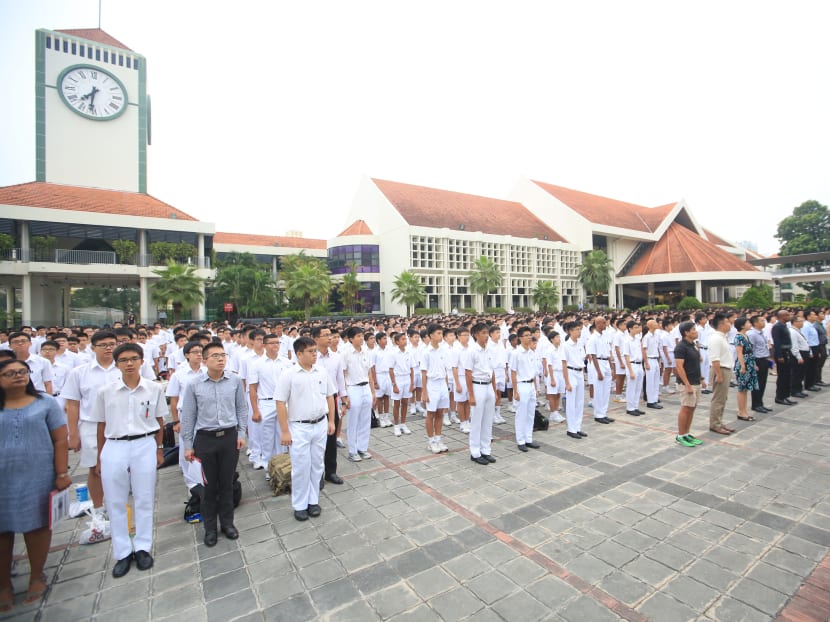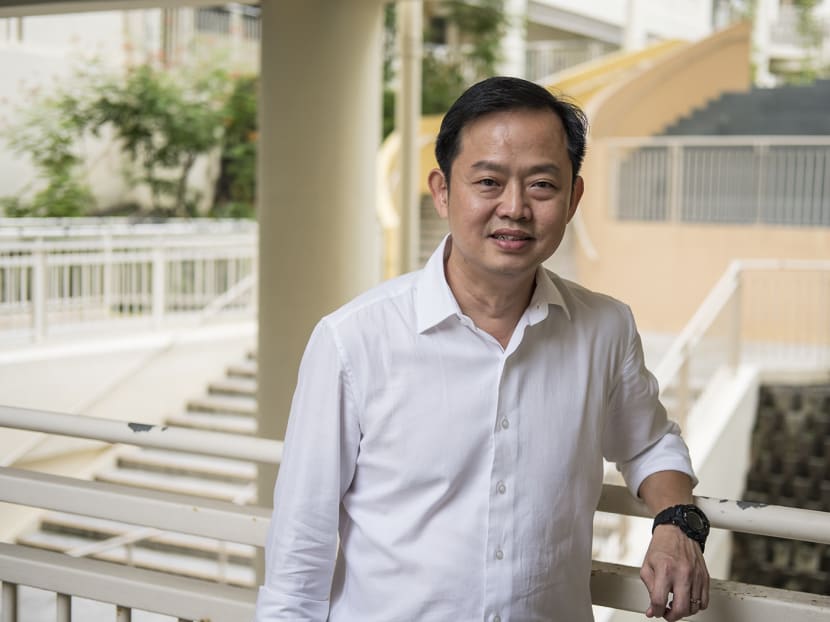Don’t call us an ‘elite school’, says RI as it ramps up outreach to heartland primary schools
SINGAPORE — Debunking the view that Raffles Institution (RI) is an "elite school" is at the top of the school's agenda, said its principal Mr Frederick Yeo.

Debunking the view that Raffles Institution is an “elite school” is at the top of the school’s agenda, said its principal Mr Frederick Yeo.
SINGAPORE — Debunking the view that Raffles Institution (RI) is an "elite school" is at the top of the school's agenda, said its principal Mr Frederick Yeo.
This comes amid comments made by Prime Minister Lee Hsien Loong in Parliament last week where he recounted his conversation with Education Minister Ong Ye Kung who told him RI has become "less diverse" over the years.
The common perception that RI is among Singapore's "elite schools" is one that Mr Yeo and Mr S Magendiran, the school's senior deputy principal for student development, are keen to challenge.
In an interview with TODAY, Mr Yeo said: "We want people to move away from this mindset… Once you use the word elite, you divide, you separate, you segregate. And I think that is totally unhelpful."
The view that RI is a school for students from upper middle class families is a myth, said Mr Yeo, who had previously headed Crest Secondary School, a specialised school which integrates vocational and academic training for students from the Normal (Technical) Stream. He took over the reins at RI from Mr Chan Poh Meng in January.
Mr Chan himself had caused a stir in 2015 when he admitted that RI had become "insular" during a speech at the school's 192nd Founder's Day.
The storied institution had become "middle class" and was no longer "truly representative of Singapore", said Mr Chan, who stressed then that it must do more to counter accusations of becoming increasingly elitist.
Addressing some 2,000 students, teachers, parents and alumni, he had said: "A long period of conditioning means that we often fail to see elitism even when it is staring at us in the face."
Since then, the school has been redoubling its efforts to reach out to primary schools in the heartlands to encourage prospective students from diverse backgrounds to apply to study there.
Mr Yeo has personally reached out to teachers from 60 neighbourhood schools this year to raise awareness of existing schemes to support students from diverse family backgrounds, especially those who need financial support.

Raffles Institution principal Frederick Yeo. TODAY file photo
One such scheme is the Raffles Scholarship, which is funded by alumni and offers annual awards of up to S$3,000 for student recipients of the Ministry of Education's (MOE) Independent School Bursary. It helps support their living expenses and participation in enrichment programmes. Annual awards of S$1,000 are also offered to Primary 5 and 6 students who have done well in their examinations.
The school has also refrained from highlighting its achievements during its annual open house sessions in recent years. "We don't talk about how many students go to Oxford, Cambridge… That is not the primary (message)," said Mr Magendiran.
"Of course, we can celebrate and all that, but what is important is when you come to RI, we want to tell you the kind of education we can give to you, which also focuses on values and character building."
Their efforts have borne fruit, said the principals, as they noted that RI enrolled over 400 Year 1 students from 113 primary schools for its Integrated Programme this academic year.
During his tenure at Crest Secondary School, Mr Yeo had also spearheaded a collaboration between the scouts at both schools, which saw the scouts from RI sharing their knowledge on camp craft and scouting skills with their Crest counterparts. The students continue to meet weekly as the project is ongoing.
Prime Minister Lee Hsien Loong also revealed in Parliament last week that MOE is working with RI and other "popular schools" to ensure that they do not become "self-perpetuating, closed circles". Social networks must remain open and permeable, Mr Lee had stressed.
As one of the oldest schools in Singapore, the 195-year-old institution has a "national obligation" to uphold the reputation it has built as a bastion of meritocracy, said Mr Yeo.
The school is also exploring a direct admission option for prospective students based on their track record in leadership and character development.
"RI came to where it is today because of a very strong adherence to its meritocratic principles… So there is a lot of concern to make sure we remain true to our historical roots of providing every deserving child the chance to excel in a school like RI," said Mr Yeo.
Mr Magendiran added: "We want to demystify RI. Yes, we have bright students, we have good facilities, we have some advantages. But those are what we want to share with the community."
While the school can do its part to encourage a diverse population, the way its students conduct themselves matter too, said Mr Yeo.
He added: "Understandably, if a child comes from a well-to-do family, they have more resources and there are more things they can do.
"Even the dressing, the way they speak could set them apart. This is something we want the students to be more conscious of too as they interact with others from different family backgrounds."






